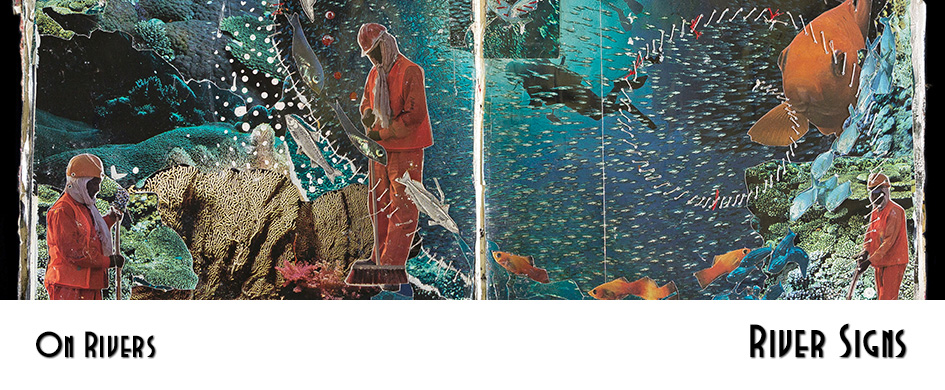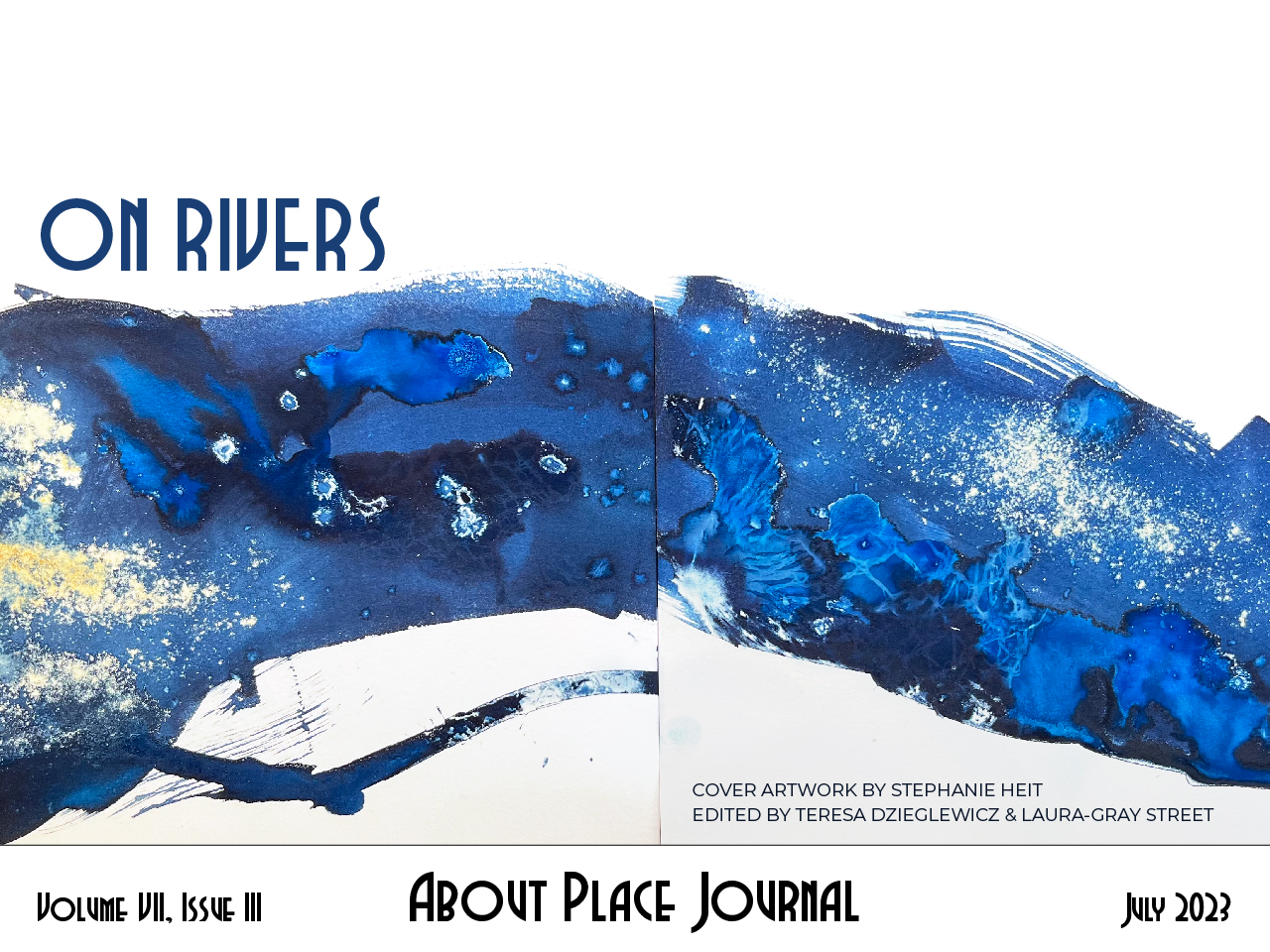to the kitchen, stare at the bamboo reeds outside,
past the neighbor’s chain-link toward the power lines,
the fat squirrels, red bricks of the Victorians with
wide window-booths, out toward tracks that seam
over Baltimore and Spruce. Past the highway’s spiraled curls,
around the museum, past the Schuylkill with its steady bleat
against land’s flanks. Past those boxy houses tucked in tight,
to the end of what my mind’s eye knows. Plumes rise
from the refinery, its campus of concrete and rust. It’s a portent,
an image of the end days just outside the city’s cobbled gaze.
Each morning, I lie in bed and listen to my love’s shallow breaths,
afraid of air that makes him gasp himself awake.
Product of crude oil trails in the heartland, shale
below its surface, where the girls of North Dakota tribes live
fearing for their lives. Mothers try to protect them.
Carry this at all times. From men’s encampments made of trailers,
stacked and hasty, the plume’s particulate origin. Families
shorn of branches. A chorus of lungs, strained. I stand at the range,
boil coffee, plate eggs. A chain of labors, lives unnamed.
I want to give thanks the way my parents taught me. But what
kind of grace is shaped of stolen lands and lives? Plate, coffee,
air, eggs: I survive on a filthy line. I hold my cup. Breathe
what once seethed under the crust, and then—piped up—
became stocks, became bonds, became blood.


